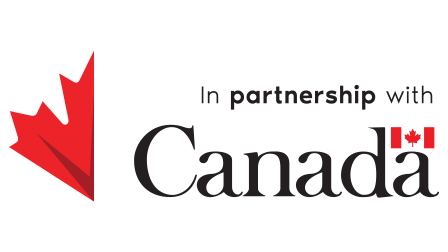New initiative taps into the power of nature to build resilience and protect biodiversity amid climate crisis
September 8, LUSAKA—The three-year Climate Adaptation and Protected Areas (CAPA) initiative, launching today in Zambia’s capital, will use nature-based solutions to support local communities in adapting to climate change while safeguarding critical ecosystems in and around protected areas in the Kavango-Zambezi and Greater Virunga landscapes in sub-Saharan Africa, as well as in Belize and Fiji.
“CAPA will bridge the gap between protected areas management and climate change adaptation planning, while involving women and marginalized groups at all stages to ensure an inclusive approach,” said Anne Hammill, Associate Vice President, Resilience, at IISD.
Through the CAPA initiative, IISD, along with the World Wide Fund for Nature (WWF) and the Wildlife Conservation Society (WCS), with support from Global Affairs Canada, will work with local communities, traditionally marginalized groups, women, and national and local authorities to design and implement concrete gender-responsive, conflict-sensitive, nature-based solutions for adaptation that can be implemented right away.
WWF Zambia Country Director, Nachilala Nkombo, says “CAPA represents a valuable opportunity to enhance climate change adaptation measures in the Kavango-Zambezi landscapes. By working closely with local communities, we can develop solutions that not only address climate change impacts but also empower communities to actively participate in safeguarding Zambia’s natural heritage.”
CAPA will implement a wide range of activities in each site to achieve its objectives, such as
- establishing native tree nurseries to support reforestation efforts, restocking community game ranches with native wildlife to restore ecological balance, and initiating the establishment of community forests in Zambia;
- supporting restoration activities of agricultural lands adjacent to protected areas, through soil and water conservation, in Uganda;
- promoting sustainable fisheries and establishing marine protected areas while supporting the development of climate-resilient alternative livelihood options in two communities in Fiji;
- establishing financial protections for marine reserves in the event of natural hazards in Belize.
“Through the CAPA initiative, Canada reaffirms its commitment to climate action and supporting sustainable development in international contexts,” said Honourable Ahmed Hussen, Canada’s Minister of International Development, at today’s launch event. “We are proud to partner with organizations like IISD, WWF, and WCS in implementing gender-responsive approaches that ensure inclusive and equitable outcomes for all.”
“CAPA aligns with Zambia’s commitment to sustainable tourism development and the conservation of our natural resources,” said Honourable Rodney Sikumba, Zambia’s Minister of Tourism. “By establishing community forests and engaging with traditionally marginalized groups, we can ensure that local communities are at the forefront to drive the climate adaptation agenda, fostering long-term resilience in line with our global goals on adaptation commitments.”
Media Contacts
For further information or interview requests, please contact:
Hazel Zulu
Senior Liaison Officer, Canadian High Commission
Email: Hazel.Zulu@international.gc.ca
Mobile: +260 979 473 284
Benetria Milambo
Communications Coordinator, WWF Zambia
Email: bmilambo@wwfzam.org
Mobile: +260 772 099 733
Marie Royer
Communications Officer, IISD
Email: mroyer@iisd.ca
About IISD
The International Institute for Sustainable Development (IISD) is an award-winning independent think tank working to accelerate solutions for a stable climate, sustainable resource management, and fair economies. Our work inspires better decisions and sparks meaningful action to help people and the planet thrive. We shine a light on what can be achieved when governments, businesses, non-profits, and communities come together. IISD’s staff of more than 250 experts come from across the globe and from many disciplines. With offices in Winnipeg, Geneva, Ottawa, and Toronto, our work affects lives in nearly 100 countries.
You might also be interested in
Biodiversity Is in Crisis—Here's one way to fix it
A growing movement of projects and partnerships is using locally driven and gender-responsive nature-based solutions to address the twin crises of climate change and biodiversity loss. Scaling up this work to match the urgency and reach of the crises will be a challenge—but it’s one we must embrace.
Tackling flash floods, urban heat, and other climate change threats in three sub-Saharan African Cities
A new project will use solutions found in nature to improve the resilience of 2.2 million people in Dire Dawa (Ethiopia), Kigali (Rwanda), and Johannesburg (South Africa).
The Climate Adaptation and Protected Areas Initiative: What you need to know
The populations of millions of animal and plant species continue to decline at accelerating rates across the globe, with many under threat of extinction. The Climate Adaptation and Protected Areas (CAPA) Initiative will contribute to addressing this challenge.
How Fiji Is Using the National Adaptation Plan (NAP) Process to Scale Up Ecosystem-Based Adaptation (EbA)
Fiji is using its national adaptation planning efforts to scale up and make Ecosystem-based Adaptation (EbA) a strategic priority.

